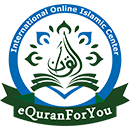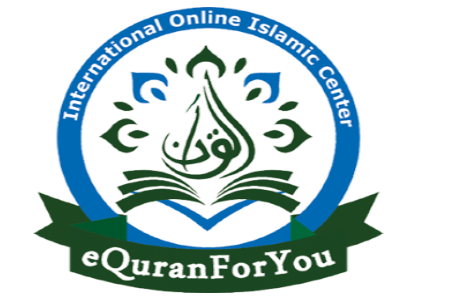The political impact of Islam in the world
For over a thousand years, two words have been used to describe Islam, "political" and "Islam". Political Islam is a term used by political leaders and thinkers to describe Islam's compatibility with political leadership. In the same way, Political Islam is a term given to the politics of Islamism. Muslim activism is increasing in the west and women are at the forefront. In this blog, we will look at what political Islam is and its role around the world.
Political Islam – The Global Impact
Well, Islam is one of the world's most popular religions. It is practiced by more than a billion people and is the fastest growing religion in the world. At its key core is the five pillars of Islam, including a mandatory system of giving, which is thought to have promoted Islam's expansion throughout the Middle East and Africa.
In an age where terrorism and violence are associated with Islam and Muslim people, understanding the political impact of Islam in the world is vital in gaining a better understanding of the modern world.
Islam is making a political surge in the world. With the rise of ISIS, the movement of refugees in Europe, Islamic fundamentalism has become a big political issue. So how does this affect the rest of the world? And does Islam have a political future? This blog will look at some of the major political impacts that have shaped the world as we know it and how Muslim people have shaped the world through political force.
- The word Islam and its meaning
- The history of Islam, and its political impact
- Islam as a political ideology
- The growth of the Muslim population and how it is affecting the west
- Islam's political impact in the Middle East
- Islam's political impact in Southeast Asia
- The political impact of Islam in Africa
- How has Islam influenced the world in the 21st century?
Islam is a growing religion with a political impact that stretches across the globe. The political impact of Islam in the world is defined by the political cultures within different Muslim societies. Let us have a look at the headings that impact the world politically.
1. The word Islam and its meaning
Islam is largely based on customs and rules set by Allah, established in the Quran, which is Islam's holy book. Islam is a monotheistic religion, that is, the religion believes in one Allah, the same Allah that Jews and Christians believe in.
The word Islam means "submission," and those who believe in Islam are called Muslims. The word Islam is not used to refer to the religion itself, but to the actions or acts of those who practice it. The term Muslim means "one who submits to the will of Allah," and is also used to describe those who practice the Islamic religion.
Fundamental to the Islamic religion is the belief that there is no God but Allah, and that Muhammad (PBUH) is the last prophet of Allah.
The religion is being practiced in many different countries all around the world, with the largest number of followers living in Indonesia, Afghanistan, Iran, the Middle East, Pakistan, India and Bangladesh.
2. The history of Islam, and its political impact
This is the second article from my series on Islam. The first article is “How Islam is the fastest growing religion in the world by percentage”.
Islam is a unique religion and a unique culture which has conquered the hearts and minds of over a billion people. There are many different factors as to why this is the case, but one of the most important is the way in which Islam is presented to the world. Many people think that Islam is a religion of peace, but this is not the only reason for its success. The political and social impact of Islam has been felt across the world for over 1400 years.
The Prophet Muhammad was born in 570 C.E. in the city of Mecca. The city was a commercial center and one of the most important cultural and religious sites in the Arabian Peninsula. Muhammad’s father died before he was born, and his mother died when he was 6 years old. He was raised by his uncle, Abu Talib.
At the time, the city was divided into two religious and political factions: the wealthy Meccans, who controlled the city and made a living from its caravan trade, and the poor and lower class, who were not allowed to enter the city, and lived outside the city walls. Although the Prophet Muhammad was born into a noble family, he was a member of the lower class.
Biography:
The history of Islam can be traced back to the early 7th century. The founder of Islam, Muhammad ibn Abdullah, lived in the Arabian Peninsula during this period. Muhammad is believed to have been born in Mecca in 570 AD and migrated to Medina in 622 AD. He preached his religion publicly, defending himself against his opponents and calling on people to believe in one Allah.
The Islamic calendar starts in 622 AD, the year Muhammad immigrated to Medina. The first Islamic state was the Rashidun Caliphate, which existed from 632 AD to 661 AD. The Rashidun Caliphate was succeeded by the Umayyad Caliphate in 661 AD. The Umayyad Caliphate was followed by the Abbasid Caliphate, which lasted from 749 AD to 1258 AD.
The Abbasid Caliphate was followed by various dynasties and empires, such as the Ottoman Empire. The Ottoman Empire collapsed in the early 20th century, leaving a power vacuum, which led to the collapse of the 3rd caliphate.
3. Islam as a political ideology
Islam is a religious and political ideology that is followed by more than 1.6 billion people in the world. The earliest political document of Islam is known as the Constitution of Medina, which was drafted by Muhammad in 622 AD. The document states the rights and responsibilities of the citizens, including the government's commitment to provide assistance for the poor and needy and to protect the people from those who would commit violence against them.
Islam, like any other religion, is a political ideology. In other words, Islam is an explicit and comprehensive set of ideas that provide political solutions to social, economic, and political problems. It is a system of governance, an all-encompassing way of life, and a comprehensive system of law and social order.
Ibn Khaldun (1332-1406), who is considered to be the father of modern sociology and the founder of historiography, stated that: "If religion possessed such a power that it could penetrate all aspects of life, then it was the rule of Islam."
According to the great Muslim scholar Abu Hamid Muhammad al-Ghazali (1058-1111), "Islam is a religion and a state, a faith and a government, a source of law and a legal system, a religion and a state, a faith and an army, a religion and a politics, a religion and a school, a religion and a community, a religion and an economic system, a religion and a trade, a religion and a kinship group, a religion and a language."
4. The growth of the Muslim population and how it is affecting the west
The Muslim population has become a topic of discussion in many western countries and how it has affected the west. Many people are concerned about the growth of the Muslim population in western countries and how it is affecting western society.
The growth of the Muslim population has been one of the most discussed topics in the west in the last 30 years, but the number of Muslims who are active in society and the number of Muslims who are actively involved in the overall growth and development of a country is not as high as people think.
The fact is, most Muslims that live in the west are there because they were born there. Many of them are not actively trying to change the way people live and are not actively trying to change the way people believe in their religion.
The Muslim population has become a major topic of discussion in the west, but many people are not aware of the growth of Muslims in western countries because most of the Muslims in western countries are born there and are not actively trying to change the way people live and the way that people believe in their religion.
The Muslim population is expected to grow in the next decades. The growth is mostly due to high fertility rates and the recent influx of Muslim refugees. The Muslim population is now the fastest growing religion in the world.
The Pew Research Center predicted in 2016 that the Muslim population will grow twice as fast as the world’s population by 2050. The Muslim population has grown from about 50 million in 1900 to 1.6 billion in 2010. Europe’s Muslim population is expected to double by 2030 and triple by 2050.

5. Islam's political impact in the Middle East
The political impact of Islam in the Middle East is a hot topic today. It has been for a long time. Islam is a religion that has been around for almost 1400 years. It is a religion meant for all people, but it was created for the Arabs. That is why it is so deeply rooted in the Middle East. It was brought from the Arabian Peninsula to the Middle East, and it spread from there.
The Middle East has had the biggest impact on the world. The Middle East is the birthplace of three of the world's major religions: Islam, Judaism, and Christianity. It is home to the two holiest sites in Islam, the cities of Mecca and Medina. It is home to some of the most iconic cities in the world, like Cairo, Jerusalem, and Damascus. While people in the west think about the Middle East as an area of turmoil and violence that is far from the truth.
The Middle East is also a place of great learning. The Middle East is also home to some of the most amazing architecture in the world. It is also a place of great invention. The Middle East is a place of great culture. The Middle East is a place of great food. The Middle East is a place of great diversity.
Islam has a long-standing political impact in the Middle East. In fact, a case could be made that Islam has been the most important political force in the region over the past 1000 years. It has been the main factor in the rise and fall of dynasties, the change of borders, the establishment of empires, and the emergence of new states.
6. Islam's political impact in Southeast Asia
Religion and politics are often considered two separate entities in the modern world. However, the truth is that the two have always been interlinked. Islam's political impact in Southeast Asia is evident in the various countries and their constitutions, as well as their respective laws and policies.
Islam's political impact in Southeast Asia is evident in the various countries and their constitutions, as well as their respective laws and policies. Indonesia has the largest Muslim population in the world. Muslims make up more than 85% of the population, and the remaining 15% are mostly Catholics and Protestants. The country's constitution is based on Pancasila, which is an eclectic combination of Western and traditional Indonesian beliefs.
Pancasila serves as the backbone of the government. The government's policies are also heavily influenced by Islam. For instance, the government imposes a maximum of 5% annual interest on loans, thus preventing usury, which is forbidden in Islam.
As a political ideology, Islam is a major factor in Southeast Asia. Malaysia and Indonesia are Muslim-majority countries, and their respective governments both claim to be Islamic states. Islam is also a minority religion in the Philippines, Singapore and Brunei. Muslim groups have been politically active in all of these countries, although perhaps less so in Singapore. Islamic political activism can be both violent and nonviolent.
7. The political impact of Islam in Africa
Africa has the largest concentration of Muslims in the world, but it also has the largest number of non-Muslims. Most of the non-Muslims live in South Africa and some countries in the North. This means that the religion is spread across the continent of Africa in a way that it is not spread on any other continent.
The fact that Africa is the largest continent in the world gives religion a massive boost in terms of the number of people who belong to it. Africa is also the largest continent by landmass, which means that the population is spread out and the number of Muslims does not overwhelm the non-Muslim population. It also means that the continent has a large number of different countries in it, with different cultures and traditions. This diversity means that the religion is practiced in a number of different ways, but the core tenets remain the same.
In the last century, Islam in Africa has had a far-reaching effect on the politics of the continent. In countries with a majority Muslim population, for example, Islam has played a role in the creation of national boundaries.
Sometimes, as in the case of the French colonization of Algeria, Islam has been used as a justification for the imperialist ambitions of European powers. African rulers have also used Islam to justify the creation of authoritarian regimes by arguing that they were the only ones capable of protecting Muslim populations from the “evils” of Western culture.
In addition to its role in justifying colonization, Islam has also been used as a rallying call for African independence movements. Placing a strong emphasis on unity and equality, Islam has played an important role in creating a sense of unity in groups that have been marginalized or oppressed by the ruling class.
8. How has Islam influenced the world in the 21st century?
There is no doubt that Islam has had a huge impact on the world. It has changed the way people dress, the way they worship, and even the way they look. Many people are concerned about the political and cultural impact of Islam on the world, but what if we told you that most of the world is actually not Muslim?
In fact, the majority of the world is not even religious. In fact, most of the world does not have any sort of religion at all, let alone Islam. So, does that mean that Islam does not impact the world? Of course not. The reality is that Islam has had a huge effect on the world. But, that’s not always a good thing. Islam has been instrumental in shifting the way the world works and how governments are run. It’s not just about the religion; it’s about the political attitude of the religion.
In the last two decades, Islam has left a mark on the international scene. In the early 20th century, the world's Muslim population was estimated at around 100 million (1). Today, the number of followers of this religion has exceeded 1.6 billion, making it the second-largest religion in the world after Christianity.
In a way, the growth of Islam reflects the increase in the world's population, but it is also a result of the increase in the number of Muslim immigrants in the West. Most Muslim immigrants moved to the West in the 1960’s and 1970’s. Today, the majority of Muslims can be found in Asia and Africa.
One of the reasons why Islam gained so much ground in the 21st century is because of its followers' strong faith in their religion and the fearlessness they demonstrate.
Final Words:
There is no doubt that we live in a world where Islam has a major impact on the political arena. Whether that be in the Arab world, or elsewhere in the world, it is an undeniable fact. We have looked at the Islamic community and its impact on the political world, and hope that you have found this useful.
The Islamic world is a continually-evolving entity, and its political impact is constantly shifting. There are a number of countries that are currently run by Islamic political parties, including Pakistan, Bangladesh, and Indonesia. Additionally, the Islamic State of Iran was founded in 1979 and is currently run by a Shiite Muslim political party.
We would love to hear your thoughts on the subject, so please feel free to get in touch with us.





Leave a Reply
Your email address will not be published. Required fields are marked